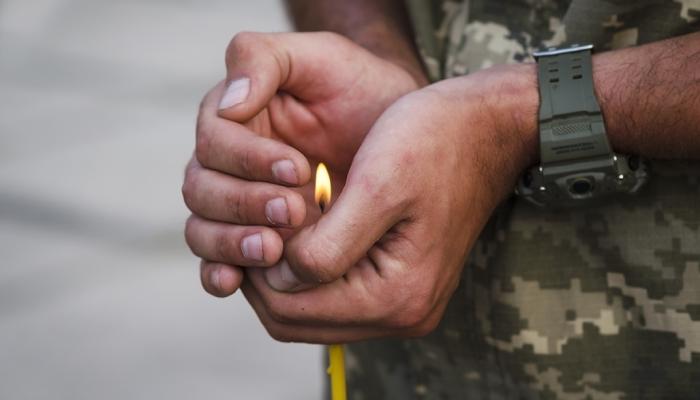M.6 Why should I sacrifice myself for couch potatoes at home – who may even insult or attack me?
This is a crucial question. The Christian answer to this question is related to Jesus’ self-sacrifice. He did not search for recognition from those he was suffering for: whatever their attitude, he was fully dedicated to his mission. All soldiers are asked to do the same, and as such the military calling comes very close to Jesus’ dedication.
This is where “Love your enemies” (Matthew 5:44) becomes concrete. Love is God’s highest command. This goes way beyond the romantic love we dream of: here we speak about that which unites life and death, and even gives life beyond death. Your serving and suffering serves a higher aim, that of a more peaceful world. And as a Christian it ultimately serves the mission of God.
What is peace in this world?
Peace in this world, which is required for the respect and development of human life, is not simply the absence of war or a balance of power between adversaries. It is “the tranquillity of order” (Saint Augustine), “the work of justice” (Isaiah 32:17) and the effect of charity. Earthly peace is the image and fruit of the peace of Christ [CCCC 481].
What is required for earthly peace?
Earthly peace requires the equal distribution and safeguarding of the goods of persons, free communication among human beings, respect for the dignity of persons and peoples, and the assiduous practice of justice and fraternity [CCCC 482].
What is peace?
Peace is the consequence of justice and the sign of love put into action. Where there is peace, “every creature can come to rest in good order” (Thomas Aquinas). Earthly peace is the image of the peace of Christ, who reconciled heaven and earth. Peace is more than the absence of war, more than a carefully maintained balance of powers (“balance of terror”). In a state of peace, people can live securely with their legitimately earned property and freely exchange goods with one another. In peace the dignity and the right of self-determination of individuals and of peoples are respected. In peace human coexistence is characterized by brotherly solidarity [Youcat 395].
“I pay homage to all those men and women whose loyalty and self-sacrifice have benefitted humanity as a whole… In particular, I would recall today those who gave their lives for peace and reconciliation among peoples” [Pope Francis, to the United Nations, 25 Sept. 2015].



